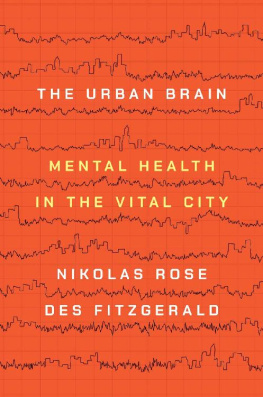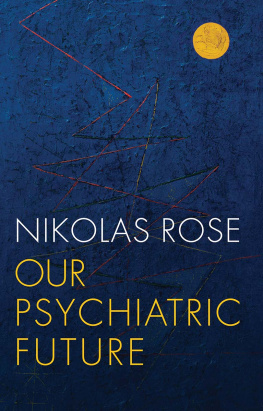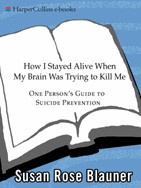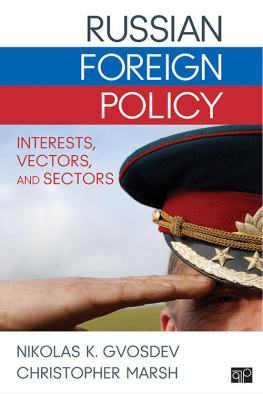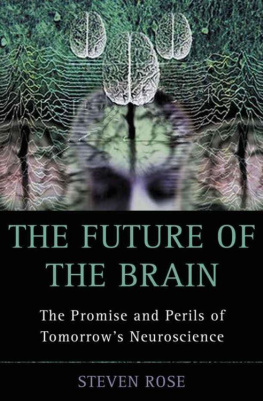Nikolas Rose - The Urban Brain
Here you can read online Nikolas Rose - The Urban Brain full text of the book (entire story) in english for free. Download pdf and epub, get meaning, cover and reviews about this ebook. year: 2022, publisher: Princeton University Press, genre: Science. Description of the work, (preface) as well as reviews are available. Best literature library LitArk.com created for fans of good reading and offers a wide selection of genres:
Romance novel
Science fiction
Adventure
Detective
Science
History
Home and family
Prose
Art
Politics
Computer
Non-fiction
Religion
Business
Children
Humor
Choose a favorite category and find really read worthwhile books. Enjoy immersion in the world of imagination, feel the emotions of the characters or learn something new for yourself, make an fascinating discovery.
- Book:The Urban Brain
- Author:
- Publisher:Princeton University Press
- Genre:
- Year:2022
- Rating:5 / 5
- Favourites:Add to favourites
- Your mark:
- 100
- 1
- 2
- 3
- 4
- 5
The Urban Brain: summary, description and annotation
We offer to read an annotation, description, summary or preface (depends on what the author of the book "The Urban Brain" wrote himself). If you haven't found the necessary information about the book — write in the comments, we will try to find it.
The Urban Brain — read online for free the complete book (whole text) full work
Below is the text of the book, divided by pages. System saving the place of the last page read, allows you to conveniently read the book "The Urban Brain" online for free, without having to search again every time where you left off. Put a bookmark, and you can go to the page where you finished reading at any time.
Font size:
Interval:
Bookmark:
THE URBAN BRAIN
The Urban Brain
Mental Health in the Vital City
Nikolas Rose and Des Fitzgerald
PRINCETON UNIVERSITY PRESS
PRINCETON AND OXFORD
Copyright 2022 by Princeton University Press
Princeton University Press is committed to the protection of copyright and the intellectual property our authors entrust to us. Copyright promotes the progress and integrity of knowledge. Thank you for supporting free speech and the global exchange of ideas by purchasing an authorized edition of this book. If you wish to reproduce or distribute any part of it in any form, please obtain permission.
Requests for permission to reproduce material from this work should be sent to
Published by Princeton University Press
41 William Street, Princeton, New Jersey 08540
99 Banbury Road, Oxford OX2 6JX
press.princeton.edu
All Rights Reserved
Library of Congress Cataloging-in-Publication Data
Names: Rose, Nikolas S., author. | Fitzgerald, Des, author.
Title: The urban brain : mental health in the vital city / Nikolas Rose and Des Fitzgerald.
Description: Princeton, New Jersey : Princeton University Press, [2022] | Includes bibliographical references and index.
Identifiers: LCCN 2021035095 (print) | LCCN 2021035096 (ebook) | ISBN 9780691231655 (hardcover) | ISBN 9780691178608 (paperback) | ISBN 9780691231648 (ebook)
Subjects: LCSH: Cities and townsHealth aspects. | Urban health. | Urban ecology (Sociology)Health aspects. | Mental healthEnvironmental aspects. | Stress (Psychology)
Classification: LCC HT151 .R6495 2022 (print) | LCC HT151 (ebook) | DDC 307.76dc23
LC record available at https://lccn.loc.gov/2021035095
LC ebook record available at https://lccn.loc.gov/2021035096
Version 1.0
British Library Cataloging-in-Publication Data is available
Editorial: Fred Appel, James Collier
Production Editorial: Terri OPrey
Jacket/Cover Design: Karl Spurzem
Production: Erin Suydam
Publicity: Kate Hensley, Charlotte Coyne
Copyeditor: Karen Verde
- ix
This book arises from a program of research on the urban brain initially supported by a grant from the UKs Economic and Social Research Council (ESRC) under its Transforming Social Science scheme for a project entitled A New Sociology for a New Century: Transforming the Relations between Sociology and Neuroscience, through a Study of Mental Life and the City (ES/L003074/1). The co-investigators on this grant were Nikolas Rose and Ilina Singh, and Des Fitzgerald was the named researcher. This enabled NR and DF to set up the Urban Brain Lab in the Department of Global Health and Social Medicine of Kings College London and to organize a series of international workshops on the issues we discuss in this book. We would like to thank Ilina Singh for our collaboration in the early stages of this work, and for her generous permission to use material in the present book from two of the initial journal articles on which she was a joint author. Work funded by the initial grant led to a subsequent grant from the ESRCs Newton Scheme, led by Professor Nick Manning, for a project entitled Mental Health, Migration and the Megacity (ESRC-NSFC Award ES/N010892/1), and we express our thanks to Nick, and to Ash Amin, Li Jie, and Lisa Richaud, for their collaboration on this project, and for many discussions in Shanghai, London, and elsewhere that have had a major impact on our thoughts in this book. Two further small grants arising from the collaborative arrangement between Kings College and FAPESP (Fundao de Amparo Pesquisa do Estado de So Paulo) enabled us to undertake a scoping review of mental health, migration, and the megacity in So Paulo, followed by a project on Mental Health in Adversity: An Ethnographic Study of the Experience of Poor Mental Health in the Favelas of So Paulo, and we would like to acknowledge our collaborators at the Institute of Psychiatry, University of So Paulo, notably Laura Andrade. We thank the Brocher foundation for their support, which enabled us to host a workshop in January 2019 at the home of the Brocher Foundation, on the banks of Lac Lman. This workshop brought together research teams from Shanghai, So Paulo, and Toronto to work on our Mental Health, Migration, and Megacities projects, together with key urban mental health researchers from Berlin and Lausanne, and from three of the innovative Thrive partnerships who are developing policies and practices for supporting mentally healthy citiesin New York (ThriveNYC), London (ThriveLDN), and Toronto (ThriveTO)as well as others named below. We would like to thank Brenda Roche and Kwame McKenzie from the Wellesley Institute, Toronto, and we would also like to thank Milena Bister, Patrick Biehler, and Jrg Niewhner, from Humboldt University, and Ole Sderstrm from Neuchtel. We also thank the ESRC for a grant from the ESRCs Urban Transformation program for participation in a workshop in Rio de Janeiro, and we would like to thank Michael Keith and Andreza Aruska de Souza Santos for their support. NR was partly supported, in the final stages of the preparation of the book, by the ESRCs grant to the Centre for Society and Mental Health at Kings College London (ES/S012567/1). DF was also supported by a grant from the Leverhulme Trust (PLP-2017152) and, in the later stages, the Wellcome Trust (203109/Z/16/Z). Of course, the views expressed in this book are solely those of the authors. The book has benefited greatly from comments from the reviewers for Princeton University Press, especially from Michael Keith. Thanks to our copyeditor Karen Verde for helping us to greatly improve the clarity of the text and to Terri OPrey for supporting us through the publication process. Last but not least, we would like to thank our editor at Princeton, Fred Appel, for his patience, encouragement, and advice over the many delays that we encountered in bringing this book to a conclusion.
THE URBAN BRAIN
Our program of research on the urban brain began in an unlikely way, in a series of workshops under the rather pretentious title, a new sociology for a new century. Our objective was actually more modest than it sounded: it was to bring sociological thinking into conversation with contemporary research in the biosciences, in particular with the neurosciences, and to explore the possibilities of such a conversation in relation to just one important contemporary issue. We deliberately chose to focus on an area that had been the topic of debates in sociology, psychiatry, and politics for many decades: mental health in the city (Fitzgerald, Rose, et al., 2016b; Fitzgerald, Rose, et al., 2016a). We wanted to put together an experiment to see the possibilities, and the limits, of a collaboration that brought together leading research in the social sciences and leading research in the neurosciences. What was possible in this space, and what, if anything, could be gained for understanding the ways in which urban living and human mental life were intertwined? What was it about city life that was so bad for the mental health of many people, at the same time that it was beneficial for others? And what might be the implications of the success or failure of such an experiment for our call for a revitalization of social science?
Of course, there has always been traffic between the social sciences and the life sciences. No one who has tried to understand the nature and development of living organisms could ignore that those organisms make their lives in a world beyond the borders of their bodies, even though in their research that world is so often confined to a few roughly sketched factors or confined to a box termed environment. In their turn, sociology, anthropology, political science, even human geography, have always depended on beliefs about the kinds of creatures that human beings are, seldom articulated, usually drawing implicitly on the particular lay biology that is the common sense in their time and place. Our research, initially funded under a program for transforming social science, was in part driven by dissatisfaction with this dual inheritance. We were motivated not only by our disenchantment with the current state of sociology, but also by a sense that something new was taking shape in the sciences of life, in the many sub-disciplines of biology and neurobiology, and notably in genetics. Genetics, for many social scientists, had long been the last refuge of biological determinism, whatever geneticists might have said about their interest in gene-environment interactions. But now, it seemed, something basic had changed: the scientific necessity of recognizing that the environment was not merely something external to the organism with which an inborn genetic program interacted. As the field moved from genetics to genomics, research was showing that the expression of DNA sequences and their implications for human development, and for health and illness, was fundamentally shaped by the experiences undergone by the organism as it develops in a particular milieu and hence that the pertinent dimensions of that milieubiographical, material, social, even semanticneeded to be characterized and somehow incorporated into investigations and interpretations.
Next pageFont size:
Interval:
Bookmark:
Similar books «The Urban Brain»
Look at similar books to The Urban Brain. We have selected literature similar in name and meaning in the hope of providing readers with more options to find new, interesting, not yet read works.
Discussion, reviews of the book The Urban Brain and just readers' own opinions. Leave your comments, write what you think about the work, its meaning or the main characters. Specify what exactly you liked and what you didn't like, and why you think so.

